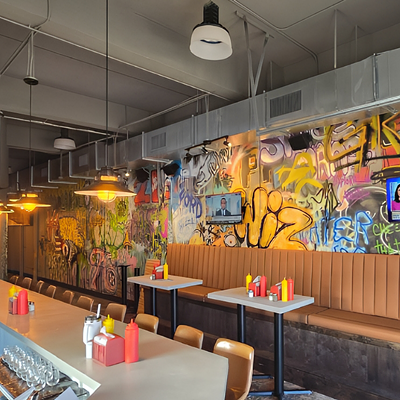What is the conflict in the Ivory Coast about?
If you're like me and you've recently canceled your subscription to the French national daily paper Le Monde because you've finally resigned yourself to the fact that you can't read French and never will, then you likely haven't read much about the growing violence in the west African nation Ivory Coast. Allow me to fill you in on what you missed.
On Nov. 6, the Ivorian air force attacked a French peacekeepers' encampment in the central Ivorian city of Bouaké. Nine French soldiers were killed. France, which has about 4,600 soldiers in Ivory Coast, immediately retaliated (with U.N. approval, in case you're curious) by destroying the entire Ivorian air force and seizing the airport in Ivory Coast's biggest city, Abidjan.
Before you become overly impressed by the awesomeness of French firepower, I should tell you that the Ivorian air force consisted of two Russian fighter jets, some helicopters, and seven large crates filled with balsa wood strips and rubber bands.
Just because the air force was puny, though, doesn't mean that Ivorians weren't pissed off. With encouragement from the government of President Laurent Gbagbo (that's not a typo, look it up!), angry, revenge-hungry Ivorians went on a rampage. The beatings, looting, killing and raping spree has devastated Ivory Coast's prosperous 15,000-person European, mostly French, expatriate community. France and other European countries are now airlifting their people out to safety, many of whom have lived in Ivory Coast their whole lives. The U.K. has sent a company of its vaunted Royal Gurkha Regiment to evacuate British citizens.
No, silly, those little pickles are called gherkins. Gurkhas are people from central Nepal who've been part of the British military since the early 19th century.
The recent violence in Ivory Coast is the result of your standard laundry list of economic, ethnic and religious problems that affect most post-colonial Third World nations (see Iraq). Ivory Coast was created by France in 1893 from the territory of about 60 distinct tribes. France had been poking around the area for hundreds of years. France named the place Ivory Coast after its most prized natural resource. That's right, Ivory Coast is the home of not one, but two major brands of bath soap!
From its independence in 1960 until 1993, the country was ruled by Félix Houphouët-Boigny. During F.H.B.'s rule, Ivory Coast became West Africa's most prosperous country thanks to the booming cocoa production business. Immigrants poured in from much poorer neighboring countries. Concentrated in the country's northern half, immigrants and their offspring make up 40 percent of the country's population.
Unfortunately, instead of building democratic institutions that would serve his country after his death, F.H.B. spent his 33 years protecting his personal rule and spending loads of cash on his native village, Yamoussoukro. He turned the backwater area into the nation's capital and built the world's largest Catholic cathedral there. I'm not kidding. It's called Basilique de Notre Dame de la Paix and it's modeled on St. Peter's in Rome. Supposedly the stained glass alone makes a visit worthwhile. FYI, less than 20 percent of the country is even Christian.
Since F.H.B.'s demise, the country has been falling apart. That's partly because his successors have lacked his political savoir faire, but also because depressed cocoa prices have battered the economy.
As is true in many countries with struggling economies, the so-called leadership has decided to play up inter-ethnic, inter-religious conflict to distract attention from its incompetence and corruption. To maintain their monopoly on power, the ruling elite in the heavily Christian south have tried in the past decade to deny citizenship to Ivorians from the immigrant-heavy, Muslim-heavy north. In a chocolate-covered nutshell, northerners got so fed up that in 2002, they rebelled and took over the northern half of country.
The French forces who were killed there this month were there as part of a U.N. effort to keep the two halves from slaughtering each other. The effort was sorta working until the Ivorian govern-ment's blood-lusting foot-soldiers, known as Young Patriots, decided that French forces were in effect protecting the rebels from the government.
If the French can't restore order, tens of thou-sands may die in a civil war. Even more troubling to some, the price of chocolate will go up.















